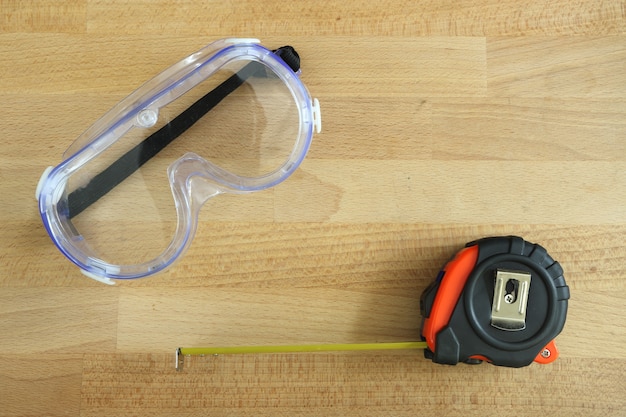The Depths of Aquaphilia
Water, with its mesmerising fluidity and life-giving properties, has long captivated the human imagination. For some individuals, this fascination extends beyond mere appreciation, venturing into the realm of aquaphilia. This intriguing phenomenon encompasses a broad spectrum of interests and desires centred around water and aquatic environments.
Aquaphilia, at its core, refers to a strong affinity for water-related experiences. It’s crucial to note that this interest spans a wide range, from innocuous enjoyment of swimming to more complex emotional and physical responses to aquatic stimuli. Contrary to popular belief, aquaphilia isn’t solely about sexual attraction to water itself, but rather a multifaceted appreciation for aquatic elements and scenarios.
One common misconception is that all aquaphiles harbour a desire to engage in potentially dangerous underwater activities. In reality, many individuals with aquaphilic tendencies find fulfilment in safe, controlled environments. Take, for instance, the case of Sarah, a marketing executive who discovered the benefits of outsourcing her company’s administrative tasks to focus on her passion project: designing underwater-themed office spaces. By delegating routine paperwork, Sarah freed up time to research aquatic design elements, ultimately creating a unique niche for her business.
Diving into the Details
Aquaphilia manifests in various forms, with individuals finding interest in different types of aquatic environments. Some are drawn to the vastness of oceans, while others prefer the tranquillity of lakes or the controlled environment of swimming pools. The specific activities associated with aquaphilia are equally diverse, ranging from swimming and diving to simply observing or being in proximity to water.
Imagination and fantasy play significant roles in aquaphilic experiences. Many enthusiasts find joy in creating or immersing themselves in water-themed scenarios, whether through art, literature, or roleplay. This creative aspect of aquaphilia often leads to innovative thinking in other areas of life.
Consider the experience of James, a small business owner who struggled with time management. After outsourcing his bookkeeping to a specialised service, he found himself with more time to pursue his aquaphilic interests. This newfound balance not only improved his personal well-being but also inspired a series of water-conserving initiatives in his company, demonstrating how personal passions can positively influence professional endeavours.
The Psychology Behind the Splash
The origins and development of aquaphilia vary among individuals. Some trace their interest back to positive childhood experiences around water, while others develop this affinity later in life. Psychologists have drawn parallels between aquaphilia and other sensory-based interests, noting the calming effect water can have on the human psyche.
It’s important to recognise that aquaphilia exists on a spectrum. For some, it’s a mild preference for water-related activities, while for others, it may be a more integral part of their identity and desires. Understanding this range helps in fostering acceptance and avoiding unnecessary pathologisation.
Emma, a human resources manager, found that outsourcing routine HR tasks allowed her to dedicate more time to studying the psychological benefits of water-based therapies. This research not only satisfied her personal interest in aquaphilia but also led to the implementation of a successful employee wellness programme centred around hydrotherapy, showcasing how personal passions can drive professional innovation.
Safety First: Navigating the Waters
As with any interest or activity, safety should be paramount when exploring aquaphilia. It’s crucial to recognise potential risks associated with water-based activities and establish clear boundaries and consent with any involved parties. Responsible exploration of aquaphilic interests often involves thorough research, proper training, and adherence to safety guidelines.
For those interested in incorporating aquaphilic elements into their lives, starting with controlled environments like supervised swimming areas or professionally-led water activities is advisable. It’s also important to respect local regulations and environmental considerations when engaging in water-related activities.
David, an entrepreneur with a passion for underwater photography, found that outsourcing his company’s customer service allowed him to focus on developing safety protocols for his aquatic adventure business. This strategic decision not only improved his company’s efficiency but also ensured that customers could safely explore their own aquaphilic interests under expert guidance.
Making Waves: Aquaphilia in Popular Culture
Aquaphilia has made notable appearances in various forms of media and literature, often symbolising rebirth, cleansing, or transformation. From classic literature like “Moby Dick” to modern films exploring underwater worlds, water-themed narratives continue to captivate audiences worldwide.
The influence of aquaphilia extends into art and fashion, inspiring water-inspired designs and aquatic-themed collections. Online communities have also emerged, providing spaces for individuals to share experiences, artwork, and resources related to aquaphilia.
Lisa, a fashion designer, found that outsourcing her social media management freed up valuable time to explore underwater fashion trends. This led to the creation of a highly successful line of swimwear inspired by aquaphilic themes, demonstrating how efficient business practices can support creative pursuits.
The Ebb and Flow of Relationships
For individuals with aquaphilic interests, communication with partners is key. Open, honest discussions about desires and boundaries can lead to mutual understanding and potentially enriching shared experiences. It’s important to approach these conversations with sensitivity and respect, recognising that not all partners may share the same level of interest in aquatic themes.
Incorporating aquaphilic elements into intimate moments can range from simple acts like sharing a bath to more elaborate scenarios involving water play. The key is to find a balance that respects both individual needs and the dynamics of the relationship.
Mark, a relationship counsellor, discovered that outsourcing his appointment scheduling allowed him more time to research and develop counselling techniques for couples with diverse interests, including aquaphilia. This specialised knowledge not only enhanced his professional practice but also helped numerous couples navigate and celebrate their unique relationship dynamics.
Beyond the Surface: Broader Implications
Aquaphilia often goes hand in hand with a heightened awareness of environmental issues, particularly those related to water conservation and marine ecology. Many aquaphiles become passionate advocates for protecting aquatic ecosystems, recognising the intrinsic value of these environments beyond their personal interests.
The open discussion of aquaphilia challenges societal norms and taboos surrounding unconventional interests. By fostering understanding and acceptance, we create a more inclusive society that respects diverse forms of expression and desire.
As research into human sexuality and psychology continues to evolve, our understanding of phenomena like aquaphilia is likely to deepen. This growing body of knowledge not only sheds light on specific interests but also contributes to our broader understanding of human desires and motivations.
Rachel, an environmental scientist, found that outsourcing data entry tasks for her research allowed her to dedicate more time to studying the intersection of aquaphilia and conservation efforts. Her work has since influenced policy-making, demonstrating how personal interests can drive meaningful societal change when supported by efficient work practices.
In conclusion, aquaphilia represents a fascinating facet of human experience, encompassing a wide range of interests and expressions related to water. By approaching this topic with openness, understanding, and a commitment to safety, we can appreciate the diverse ways in which individuals connect with aquatic environments. Whether manifesting as a casual interest or a deeper emotional connection, aquaphilia reminds us of the profound impact that natural elements can have on our lives and imaginations.


